La Salle University
Strategic Plan

Our Mission
La Salle is a Lasallian Catholic university committed to the principle that all knowledge is practical and empowering, filled with the capacity to transform lives. Anchored in the living tradition of the Brothers of the Christian Schools and in association with a diverse and inclusive learning community, our mission is to educate the whole person by fostering a rigorous free search for truth. La Salle, in affirming the value of both liberal arts and professional studies, prepares students for the lifelong pursuit and exploration of wisdom, knowledge, and faith that lead to engaged and fulfilling lives marked by a commitment to the common good.
Our Vision
The University seeks to be the leading Lasallian educational institution, rooted in the liberal arts and aligned with emerging industries, that prepares students for the challenges and complexities of living and working in a diverse democracy and global society. The strategic pillars that follow provide the foundation to lead the University forward over the next five years and beyond.
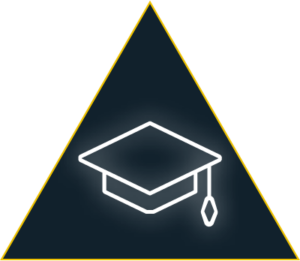
Pillar 1: Deliver an exceptional teaching and learning experience built on quality and academic rigor
Goal 1: Foster an environment that promotes high-quality instruction, academic rigor, a transformative Liberal Arts curriculum, and excellence in research and scholarship.
- Develop, support, resource, and maintain a mission-directed curriculum that expresses our Lasallian Catholic commitment to educating the whole person, with robust interdisciplinary and cross-school offerings.
- Implement comprehensive services to assist faculty and staff in adopting emerging teaching, learning, and classroom engagement strategies utilized across instructional modalities (e.g., online, hybrid, face-to-face). This includes expanding and leveraging the resources of the De La Salle Institute for Teaching and Learning to develop a series of workshops and professional development programs.
- Establish a standard for technology and digital resources (e.g., Open Educational Resources) in all academic spaces.
- Create an expanded grants team to support faculty in identifying and applying for external funding.
- Identify and submit grant applications and cultivate philanthropic opportunities to build centers of excellence and endow professorships to attract and retain top academic talent.
Goal 2: Enhance and streamline student support services to ensure the academic success of all students.
- Design and implement an assessment of incoming, undergraduate students to evaluate their holistic needs and supports necessary for academic success at La Salle.
- Evaluate our current student support services to create efficiencies and alignment between the divisions of academic affairs and student development and campus life.
Goal 3: Upgrade academic facilities to support a rigorous academic experience.
- Create an academic facilities committee charged with maximizing classroom use and upgrading academic facilities (e.g., classrooms, laboratories, and meeting spaces) to enhance the educational learning environment.
- Improve accessibility through the adoption of universal design principles and the enhancement of physical spaces (e.g., ADA compliance, signage, campus maps).
- Build infrastructure and technology to support student learning anytime, anywhere (e.g., in-person, virtual, hybrid, synchronous, and asynchronous formats).
Goal 4: Develop systems and processes to continually assess all efforts of the academic enterprise.
- Create a data warehouse to maintain a centralized repository of data from various academic and administrative systems for report generation, benchmarking, and data-driven decision making in order to improve academic efficiency, retention, and performance.
- Develop, implement, and monitor performance indicators (e.g., enrollment demand, course registration, comprehensive student outcomes data) for evaluating academic programs.
- Build and implement procedures for creating, updating, and sunsetting academic programs.
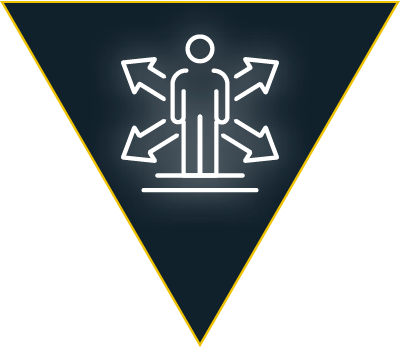
Pillar 2: Provide a transformational, holistic, mission-focused student experience
Goal 1: Integrate career development through curricular and co-curricular opportunities for students to develop marketable skills that are clearly aligned with career and post-baccalaureate educational opportunities.
- Incorporate curricular and co-curricular high impact practices (e.g., internships, collaborative learning, community-based learning, undergraduate research, capstone courses) leveraging internal and external resources to facilitate career exploration and employability post-graduation.
- Initiate a Career Explorer Plan for every student that begins at orientation and continues until graduation, with attention on self-assessments, skill building, experiential learning, and alumni networking opportunities.
- Identify and build partnerships with local, state, and national businesses and organizations and alumni to facilitate student internships, summer work opportunities, and community-engaged learning.
Goal 2: Enhance and streamline student support services to ensure the academic success of all students.
- Cultivate a vibrant student engagement environment by creating educational, cultural, religious, and social events and traditions (e.g., athletic events, welcome days, family weekend, speaker series, cultural celebrations, community building, service-oriented activities, student recognition ceremonies) that welcome the entire Lasallian community, including students, faculty, staff, alumni, trustees, and our neighborhood community.
- Continuously improve our campus safety plan to include enhancements to lighting, cameras, and campus patrols; increase collaboration with the Philadelphia Police Department, community leaders, and business owners; and develop programming focused on violence prevention.
- Identify, create, and maintain physical spaces in our community that facilitate a positive health, wellness, and recreational journey for our students, capitalizing on our recent Redevelopment Assistance Capital Program award and plans to renovate our Division 1 sports arena.
- Develop and implement educational programming, policies, resources, and protocols focused on increasing mental health awareness and health seeking behaviors that leverage the resources, training, guidance, and tools of The Jed Foundation.
Goal 3: Prepare students for the challenges inherent in working and living in a diverse democracy.
- Nurture a culture of rigorous and respectful discourse at all levels of university life to foster a caring campus community.
- Develop curricular and co-curricular opportunities (e.g., engaging with civic leaders and organizations) that allow students to develop and practice critical thinking, information literacy, and perspective-taking skills needed to engage in civic discourse.
- Utilize the city of Philadelphia as a historical learning laboratory to explore, discuss, celebrate, and critique the roots of our democracy.
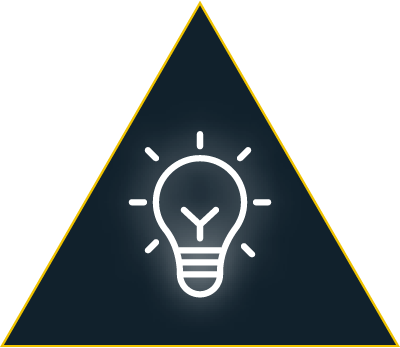
Pillar 3: Foster a culture of innovation and collaboration throughout the university
Goal 1: Inspire and support innovation and creativity through collaboration in all areas of the University.
- Establish innovation and collaboration as core institutional values (e.g., integrate throughout the core curriculum, capstone courses, co-curricular opportunities, tenure and promotion and staff performance reviews) and identify thought leaders, including influential alumni, who will guide the community to identify and enact innovative ideas and practices.
- Integrate technology, artificial intelligence, and other learning tools and approaches throughout the curriculum to ensure La Salle is on the forefront of advancing pedagogical innovations.
- Provide support and structure for training and professional development opportunities necessary to cultivate an innovative mindset among faculty and staff with particular attention to early career professionals.
- Foster and support faculty innovation in the scholarship of teaching and learning and the advancement of research through workshops, grants, and innovation competitions.
Goal 2: Augment and leverage our existing resources to identify, develop and implement new innovation and interdisciplinary grants and programs for students, faculty, staff, and alumni.
- Initiate an innovation advisory council that includes students, faculty, staff, alumni, and other influential industry leaders, charged with identifying and developing forward-thinking academic programs that are aligned with cutting-edge career opportunities.
- Implement processes to ensure timely and efficient program implementation, alignment with high growth industries and opportunities, and modalities that reflect the needs of in-person and online learners.
- Create an innovation fund for faculty and staff to identify, develop, and secure local, state, and federal grant opportunities that promote innovation and collaboration.
Goal 3: Create and strengthen strategic alliances with key internal and external stakeholders, including for-profit and non-profit organizations, to expand and enhance our academic enterprise.
- Pursue alliances with local, regional, national, and international institutions that enable La Salle to expand our degree offerings (e.g., degree offerings similar to the Penn Bioengineering partnership) and ensure our curriculum aligns with emerging opportunities in high demand.
- Partner with area organizations with strong alumni presence (e.g., health care, life sciences, pharmaceutical, data science, chemical industry, actuarial companies) to offer workshops, credentialing, and degree completion opportunities.
- Align with world-class innovation organizations (e.g., IDEO) to leverage their instructional resources and concomitantly develop campus programs and lectures.
Goal 4: Identify strategic opportunities to innovate and expand our existing academic programs in response to current, emerging, and future trends and demands in the labor market.
- Target new online graduate academic programs, certificates, and micro-credentials in high-growth fields, especially those in demand within the greater Philadelphia region and along the northeast corridor.
- Build effective structures (e.g., online, hybrid, in-person) to support the needs of adult and continuing education students (e.g., veterans, part-time, non-degree seeking).
- Develop internship and community-engaged learning opportunities to cultivate marketable knowledge and skills.
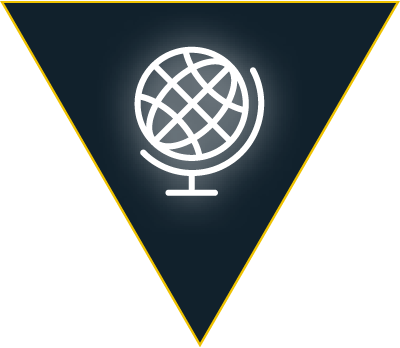
Pillar 4: Build bold, sustainable international partnerships
Goal 1: Foster and support a portfolio of global initiatives.
- Establish a Center for International Education to support global initiatives and build a global campus.
- Develop and design a robust portfolio of interdisciplinary global experiences and learning pathways for students (e.g., study abroad, travel study, online international internships, cultural and language immersion and awareness programs).
- Secure grant and philanthropic opportunities to increase international participation for all La Salle students, particularly first-generation and students from traditionally underrepresented groups.
- Promote faculty engagement with international scholarship, teaching, and partnerships through increased publicity, grant opportunities, and faculty exchange programs.
Goal 2: Cultivate a global community by preparing students for their roles as global citizens and promoting the appreciation of different cultures and multiple perspectives.
- Develop a comprehensive recruitment and retention plan for international students, including athletes, with significant growth potential and emphasis on the benefits of studying in the city of Philadelphia.
- Improve the international student experience across all aspects of academic and campus life to ensure a seamless transition to La Salle with continuous support through graduation.
- Strengthen on-campus programming that provides the University community with opportunities to engage in cross-cultural learning and social opportunities.
Goal 3: Develop sustainable strategic collaborations with international partners, including Lasallian institutions.
- Develop partnerships with international Lasallian institutions that foster opportunities for exchange programs.
- Identify collaborative international research and scholarship opportunities that build upon existing faculty expertise and address critical issues facing our global society.
- Pursue opportunities within the Lasallian international network to develop joint academic programming or dual-degree programs.
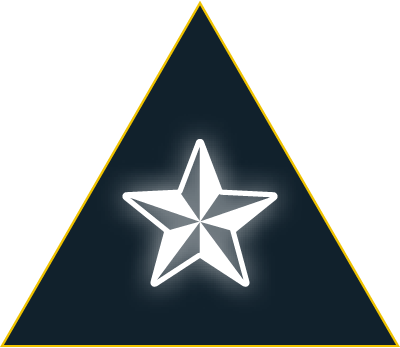
Pillar 5: Integrate Lasallian formation opportunities throughout the campus community
Goal 1: Celebrate the Lasallian Catholic intellectual, academic, and spiritual tradition of La Salle University through educational programming and physical places for students, faculty, staff, alumni, and trustees.
- Create a comprehensive orientation about the mission and ongoing education for every stage of the student, faculty, staff, alumni, and trustee life cycle.
- Develop and implement just, equitable, and inclusive principles throughout the employee lifecycle (e.g., recruitment, hiring, onboarding, and job performance) with a focus on unconscious bias training and mission alignment.
- Build physical, on-campus manifestations of our Lasallian Catholic charism (e.g., above ground chapel, statues, and sculptures).
Goal 2: Promote interfaith dialogue and celebrations to support spiritual and faith development for all members of the La Salle community.
- Collaborate with other faith communities for interreligious and interfaith dialogue and prayer services.
- Develop opportunities to honor and celebrate all faith traditions (e.g., create dedicated interfaith prayer space).
Goal 3: Foster a just, equitable, and inclusive community through experiences that celebrate and appreciate the diversity of people, experiences, and perspectives.
- Incorporate policies and procedures that embody equitable and inclusive principles at every level of La Salle’s organizational structure and that recognize the diversity of backgrounds and experiences of our campus community, including but not limited to race/ethnicity, gender identity, religion, socioeconomic status, sexuality, disability, and age.
- Provide educational opportunities and interactions for dialogue, rooted in Catholic social teaching and our Lasallian heritage, that focus on topics related to breaking systems of racial inequality and social injustice.
- Monitor and assess the campus climate, curriculum, and co-curriculum on an ongoing basis to address the needs of our diverse student body and ensure our courses and practices are culturally responsive and inclusive of diverse perspectives and viewpoints.
- Address the basic needs of our students, internally and in partnerships with local agencies, to overcome barriers related to homelessness, food insecurity, transportation, and childcare.
Goal 4: Build capacity to initiate holistic and intentional efforts to promote and support community development and engagement.
- Engage with the full-time residents and neighborhood groups of our external campus community to strengthen and build new relationships.
- Establish a designated team to champion initiatives and services that are responsive to the needs and concerns of the surrounding community.
- Develop reciprocal partnerships that identify and address specific community issues and needs, including community health, educational development, economic development, and technological expertise.

Pillar 6: Chart a sustainable financial future
Goal 1: Develop and implement a student recruitment plan for a sustainable future based on assessment of the optimal number and blend of undergraduate and graduate, and in-person and online enrollment.
- Implement a comprehensive, multi-year recruitment plan for new undergraduate student enrollment that expands our current market footprint and attracts prospective domestic, international, and transfer students, including our veteran population.
- Develop a comprehensive, collaborative graduate and adult recruitment strategy that identifies new program opportunities and modalities (e.g., “Plus-1” programs, corporate training, online certificates, and microcredentials) and creates more efficient course articulation and review processes for adult learners.
- Re-enroll and engage students who have stopped-out during the COVID-19 pandemic and those prior who have suspended their educational pursuits due to various personal reasons.
- Create a long-term, market-driven pricing strategy for undergraduate and graduate tuition.
Goal 2: Create a comprehensive marketing and communications plan that enhances La Salle’s market footprint and brand recognition, while also celebrating individual and institutional achievements.
- Define and develop a brand strategy that articulates La Salle as a first-choice academic destination for prospective students and families.
- Optimize and grow the University’s digital presence across current and emerging platforms, including the redesign of the University’s website.
- Develop a multi-channel electronic marketing strategy that serves as an attractive and informative first impression for all institutional constituents.
- Promote student, faculty, staff, alumni, and program achievements to showcase the talent and expertise at La Salle University.
Goal 3: Diversify alternative revenue streams beyond tuition, room, and board.
- Inspire donor and investor confidence in the University’s long-term financial viability by increasing our operating margin.
- Develop strategic partnership opportunities, based on faculty, staff, and alumni expertise, to deliver educational programs to external organizations.
- Identify revenue-enhancing opportunities that leverage our campus facilities, particularly during the summer months (e.g., sports camps, conferences, events).
- Pursue investment strategies that maximize return on existing assets to enhance the long-term viability of the University.
Goal 4: Engage and cultivate current and new benefactors to secure public and private funds.
- Establish a robust foundation and governmental grants office to support student scholarships, academic programs, and co-curricular activities, highlighting faculty expertise with a focus on innovation.
- Identify and solicit new and/or non-engaged alumni and donors through increased prospect research, development, and management to significantly grow the endowment.
- Reignite regional alumni chapters and develop affinity groups (including parents and families) to foster engagement and provide networking and career-advancing opportunities for current students and alumni.
- Prepare and implement a comprehensive fundraising campaign.
Goal 5: Evaluate our campus landscape and revitalize our campus environment to ensure it remains vibrant, interconnected, and student-centered.
- Establish a new campus master plan process to create a more vibrant, interconnected, student-centered experience on campus that right-sizes our campus footprint.
- Create an attractive, more environmentally friendly campus focused on energy efficiency, green spaces, and a modernized infrastructure.
- Upgrade recreational, intramural, and athletic facilities to promote the health, wellness, and fitness of La Salle and the neighborhood community.
- Complete outward-facing projects and partnerships to reflect a deeper commitment to the economic development of our near neighbor community.